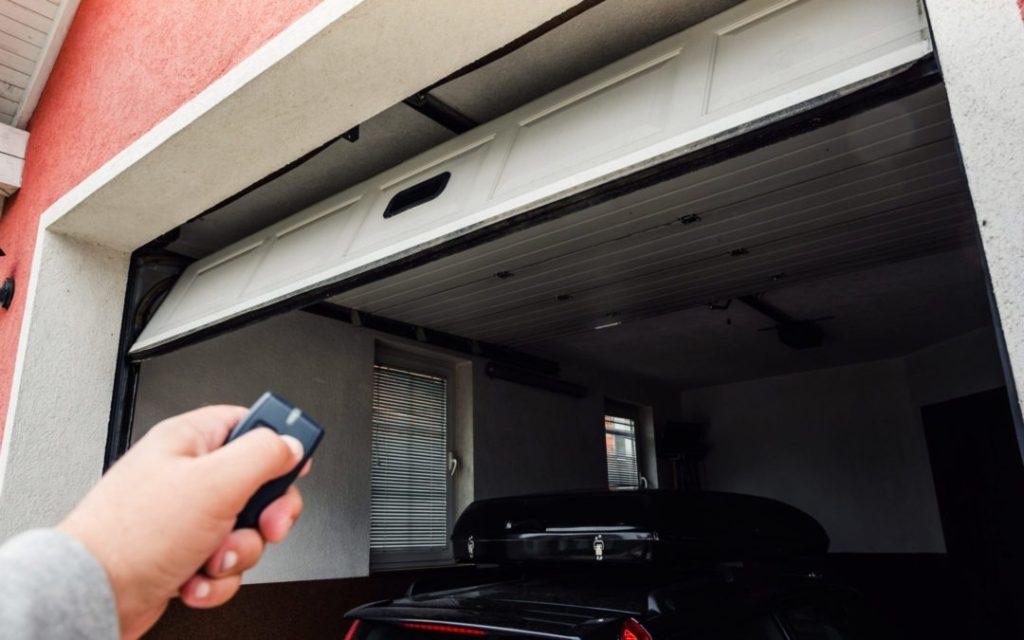A noisy garage door can be a nuisance and even a safety hazard. If your garage door is making a loud noise when opening, it is important to identify the cause of the noise so that you can take steps to fix it. In this article, we will discuss the most common causes of a noisy garage door and how to fix them.

Causes of a Noisy Garage Door
There are a number of possible causes of a noisy garage door. Some of the most common causes include:
- Loose or damaged springs: Garage door springs are essential for lifting and lowering the door. Loose or damaged springs can generate a loud noise when you open the door.
- Unbalanced door: Improperly balanced doors can place additional stress on the springs and other components, potentially resulting in noise.
- Rough or damaged rollers: The rollers help the door to move smoothly. If the rollers are rough or damaged, they can make a noise as the door moves.
- Worn or damaged hinges: The hinges help to support the door. Worn or damaged hinges can cause noise as the door moves.
- Clogged or damaged tracks: The tracks guide the door as it moves. Clogged or damaged tracks can generate noise as the door moves.
Loose or damaged springs:
Garage door springs are under a lot of tension, so they are susceptible to damage. Loose springs can produce a loud noise when you open the door. Damaged springs have the potential to break, posing a safety hazard.
To check if the springs are loose, you can lift the door by hand. If the door is difficult to lift, the springs may be loose. You can also look for signs of damage, such as rust or cracks.
If the springs are loose, you can tighten them. A qualified professional should perform this task.
Unbalanced door:
Improperly balanced doors can subject the springs and other components to increased stress, potentially resulting in noise.
You can assess the door’s balance by opening it approximately halfway and then releasing it. If the door falls to one side, it is unbalanced.
To balance the door, you can adjust the tension on the springs. A qualified professional should be the one to perform this task.
Rough or damaged rollers:
The rollers help the door to move smoothly. If the rollers are rough or damaged, they can make a noise as the door moves.
To check if the rollers are rough, you can run your hand over them. If they feel rough, they need to be lubricated.
To lubricate the rollers, you can use a light oil or grease.
If the rollers are damaged, they need to be replaced.
Worn or damaged hinges:
The hinges help to support the door. Worn or damaged hinges can produce noise as the door moves.
To check if the hinges are worn, you can look for signs of rust or cracks.
Worn or damaged hinges require repair or replacement.
Clogged or damaged tracks:
The tracks guide the door as it moves. Clogged or damaged tracks can cause the door to make noise as it moves.
To check if the tracks are clogged, you can look for debris or dirt.
To clean the tracks, you can use a vacuum cleaner or a brush.
If the tracks sustain damage, you should replace them.
Additional Tips
In addition to the solutions listed above, here are a few additional tips to help you keep your garage door quiet:
- Lubricate the moving parts regularly. This will help to keep them moving smoothly and reduce noise.
- Inspect the door and components regularly for signs of wear or damage. If you find any problems, fix them as soon as possible to prevent further damage.
- Avoid using the garage door if it is overloaded. This can put unnecessary stress on the springs and other components, which can lead to noise.
Conclusion
Garage door is making a loud noise when opening. By following the tips in this article, you can help to keep your garage door quiet and running smoothly.
Additional information
- A full turn is equal to four quarter turns.
- The number of turns or quarter turns is for each spring.
- You can keep track of the number of turns by drawing a chalk line on the springs.



Leave a Reply